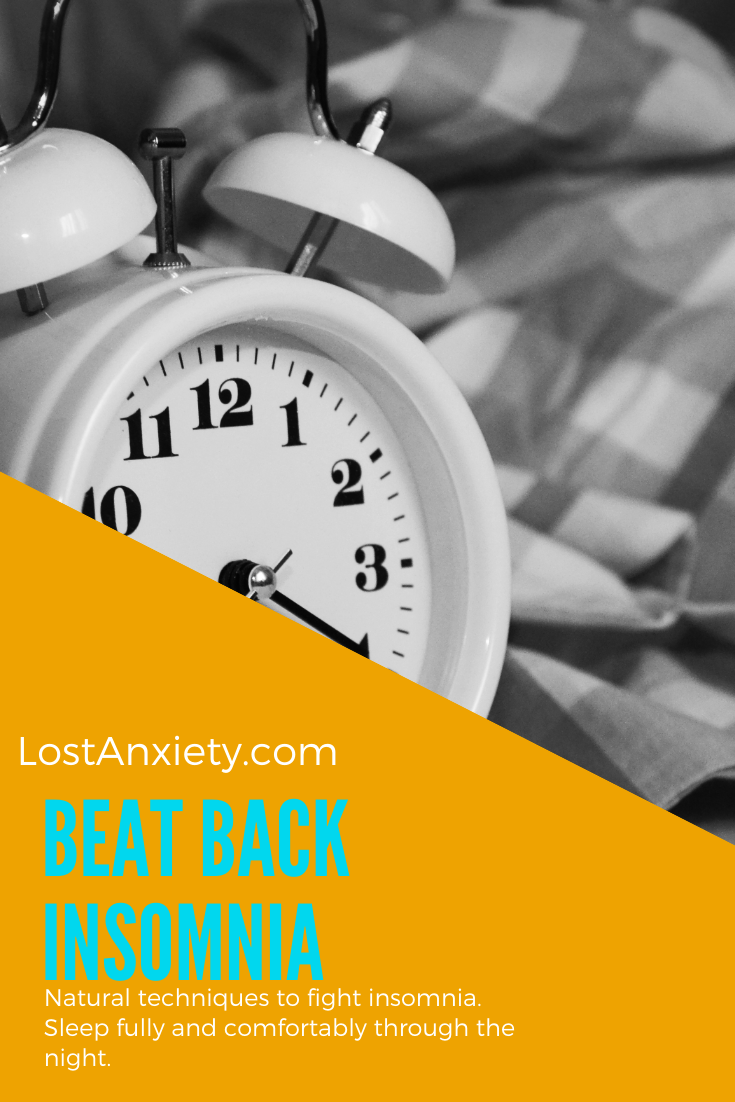Anxiety can be the root cause of your Insomnia
Some of us can’t have a good night sleep, no matter how hard we try. Sometimes, nothing helps to get a good sleep, no medicine, no poem, or no other thing can prove its effectiveness against Insomnia or bringing an end to this sleep deprived state.
Insomnia is characterized as Psychiatric as well as a biological disorder. It can be the result of a brain disorder, unhealthy sleep habits, substance use or other biological factors. Whatever the case may be, the truth is that Insomnia is the most debilitating and tiring disease to fight with but certainly not impossible.
It not only affects our social life but gives space for other similar problems, including depression, anxiety and different brain-related disorders. If we go into the anatomical analysis to as what causes the onset of Insomnia, many biological and environmental factors come into play. But the most notable of all are anxiety, stress and pre-history with depression. However, fighting with certain brain disorders can cause the onset of Insomnia. These specific conditions include;
- Obsessive Compulsive Disorder (OCD)
- Schizophrenia OR Psychosis
- Generalized Anxiety Disorder
- Post-Traumatic Stress Disorder (PTSD)
- Bipolar disorder
Above are listed almost all possible disorders which can cause the further onset of Insomnia and can lead to debilitating pain. However, one thing which stands out from all of the above is the anxiety. Anxiety is the primary diagnosis of all these disorders and plays a significant role in Insomnia.
Anxiety as a key to Developing Insomnia
There are many life situations, which causes a great deal of stress and panic. Your responsibilities, daily tasks which you have to complete, social life, friend circle or family, anything can wear on a person so much that it goes beyond worrying and set out as anxiety. Anxiety acts as our natural defense mechanism. We were made like this, to fear somethings which were threatening for our lives.
This proved to be the evolution of humans, and now it has become a part of us. Our brain when starts to panic in little or non-lethal situations, it accidentally activates our defense mechanism “Fight or Flight”. We feel alarmed all the time even when there is no need.
Research addresses this problem like a brain disorder “Generalized Anxiety Disorder”. Many people remain unaware of this disorder their whole life and suffer in silence.
Anxiety if left untreated leads to depression. Depression makes even the simplest tasks like a long hike, it disturbs the life badly and directs the person to other complications. If you suffer from depression, there is a high chance for you to develop Insomnia in the process (70-80%).
Every person have problems, and they might have a solution in the end, but worrying too extensively and making it a life or death situation is a grave mistake. Your sleep and rest are too important to be given away to some thought or future worries.
A Continuous Cycle
Insomnia and anxiety go hand in hand, there is a fair chance for you not to develop insomnia but have anxiety instead, but studies suggest otherwise. Anxiety provokes late night waking, dread and anxiousness. You can become disturbed by the thought of not being able to sleep.
This sleeplessness (Insomnia) then feeds its partner who is Anxiety and on goes this ferocious cycle. You may not become aware of having them both as a lot is going on with your brain lately. But this cycle needs to be stopped through treatment and effective lifestyle changes.
Treatment & Therapy
In case your Insomnia has grown worse, and anxiety or depression has made it very impossible to stay on the course of your life and achieve your goals, this is the time to reach out for help. You should get some treatment from a psychologist or psychiatrist. They may teach you effective strategies and mindfulness techniques which will help you to take control back and enjoy your moments of relief.
Following are various techniques which effectively counteracts the effects of Insomnia and help you get a good night sleep:
- Eliminate Alcohol and stimulants like caffeine and nicotine, completely from your diet.
- Go for a morning walk daily and try getting early in the morning.
- Make your sleeping environment comfortable and try to relax on your bed, let the thoughts vanish and create a mindfulness space in your brain.
- Consider participating in cognitive therapy, it may help to identify and correct inappropriate thoughts or events which leads to the unchecked amount of anxiety and depression.
- Stick to a regular sleep-wake schedule and try to operate in these bounds, unless you become completely sleep deprived.
- Try not to eat anything immediately before going to bed. This enables the brain to stay on for a while and interrupts sleep.
- Change your lifestyle form stress causing environments and try to live in a peaceful and more convenient environment.
While these fantastic tips and treatment tools can change your life and give you relief from tiring grasp of Insomnia, you should also practice mindfulness, instead of choosing a simple way out of the problems, face your fears and push through.
Because sometimes the only way out is through. You have to be stronger for yourself. Nobody is going to be there for you if you weren’t there for yourself in the first place. Get well and try to live in a stress-free environment.
